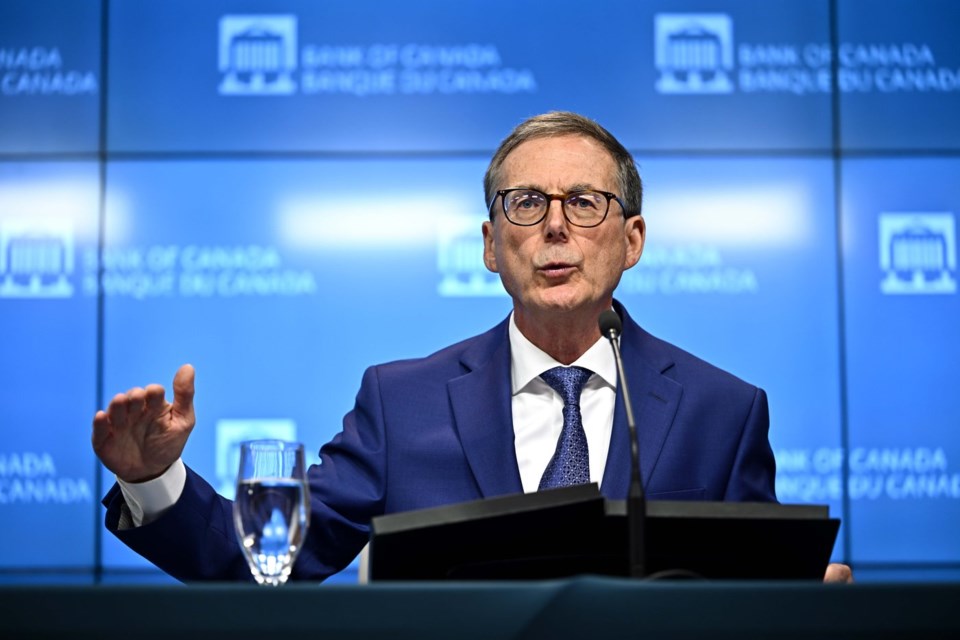Economists anticipate that Canada's annual inflation rate in August fell to its lowest level since March 2021.
Ahead of Statistics Canada's consumer price index set to be released on Tuesday, economists polled by Reuters are expecting the report to show prices rose 2.1 per cent from a year ago, down from a 2.5 per cent annual gain in July. The forecasters also anticipate inflation remained flat on a month-over-month basis.
"Unless there's something lurking out there that we're not aware of, it looks like we're headed for a pretty favourable reading," said BMO chief economist Douglas Porter.
RBC economists Nathan Janzen and Claire Fan said in a report last week that those expectations would put the headline inflation rate just a hair over the Bank of Canada's two per cent inflation target.
"Most of that August slowing is expected from a pullback in gasoline prices, but the (Bank of Canada's) preferred core CPI measures are also expected to trend lower, with the closely-watched three-month annualized growth rate easing from an average of 2.6 per cent in July," the RBC economists said.
The continued progress on slowing inflation comes as the central bank has signalled a willingness to speed up cuts to its key lending rate if circumstances warrant.
The Bank of Canada reduced its key lending rate by a quarter-percentage point earlier this month — the third consecutive cut — to 4.25 per cent. Governor Tiff Macklem said the decision was motivated by falling inflation, noting if the CPI moving forward "was significantly weaker than we expected ... it could be appropriate to take a bigger step, something bigger than 25 basis points."
On the other hand, Macklem said if inflation is stronger than expected, the bank could slow the pace of rate cuts.
Inflation has remained below three per cent since January and fears of price growth reaccelerating have diminished as the economy has weakened.
Porter said despite progress on the inflation rate, it's still "not in a place where it's a compelling argument that the bank has to go even faster."
He forecasts the central bank will cut its key lending rate by a quarter-percentage point at every meeting until July 2025, bringing it down to 2.5 per cent by that time. That prediction also comes after data released last week that showed Canada's unemployment rate rose to 6.6 per cent in August from 6.4 per cent in July.
However, Porter said it's possible the bank could speed up its rate cutting cycle if inflation continues easing.
"If we're going to be wrong, it's that we're going to get to 2.5 per cent even more quickly and possibly lower than that," said Porter.
"There is a case to be made that if the economy were to weaken further, there's little reason for the bank to keep rates in what they consider to be the neutral zone. They could go below that."
Shelter costs have remained the main driver of inflation as Canadians face high rents and mortgage payments. Porter noted that when factoring out housing costs, inflation in both Canada and U.S. is hovering slightly above one per cent.
"So really, the only thing keeping Canadian inflation above two per cent is shelter and it does look like shelter costs are probably going to fade," he said.
"It looks as if rents are starting to moderate. They're not necessarily falling, but not rising as quickly. And of course with interest rates coming down, ultimately the big kahuna here, mortgage interest costs, will recede as well."
With the U.S. Federal Reserve set to meet on Wednesday, Janzen and Fan said they expect the American central bank to announce its first rate cut in four years.
"Gradual but persistent labour market softening and slowing inflation make it clear that current high interest rates are no longer needed," they wrote.
"We think governor (Jerome) Powell’s comments will likely stay on the cautious side — hinting at future rate cuts without committing to a pre-determined path to allow for more flexibility in future decisions."
—With files from Nojoud Al Mallees in Ottawa
This report by The Canadian Press was first published Sept. 15, 2024.
Sammy Hudes, The Canadian Press



